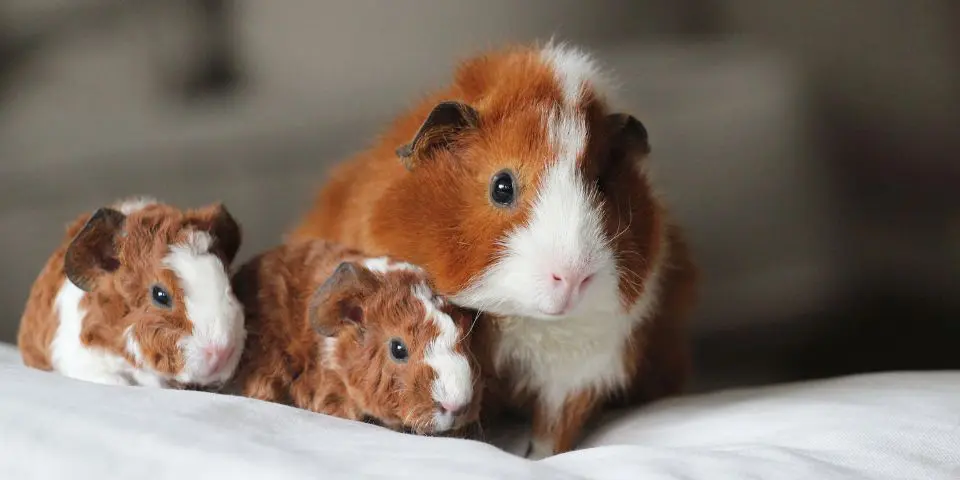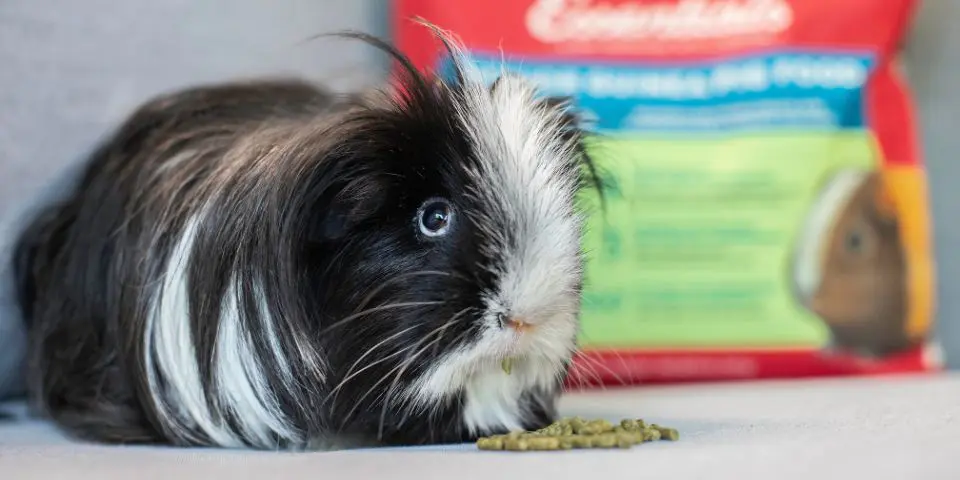Updated: June 1, 2023
Whether you are thinking about adopting a guinea pig or already have several in your family, it’s essential to understand the typical lifespan of guinea pigs and the different stages of a guinea pig’s life. In this article, we will explore the following important topics related to the life of a guinea pig:
- The average lifespan of guinea pigs
- The unique life stages guinea pigs experience
- How to properly care for guinea pigs to support longevity
- Common guinea pig health issues
- How to support senior guinea pigs

Average Lifespan of Guinea Pigs
Guinea pigs live between 5 and 7 years on average. Some guinea pigs may live longer, while others may have a shorter lifespan. Important factors that can influence a guinea pig’s lifespan include:
- Genetics
- Diet
- Environment & enrichment
- Overall care
Genetics plays a significant role in the potential lifespan of guinea pigs. Guinea pigs can sometimes inherit certain health conditions or be predisposed to health conditions that may affect their longevity.
To support a long healthy life for your guinea pig, provide a balanced diet, daily exercise, safe and appropriate housing, and regular mental and physical enrichment.
Life Stages of Guinea Pigs
Birth and Infancy
Baby guinea pigs are born covered in fur and with their eyes open. During the first few weeks, guinea pig babies rely exclusively on their mother’s milk for nutrition. For this reason, it is critical to ensure that pregnant or nursing guinea pigs are fed a nutrient-rich diet designed to provide all of the nutrients essential to support the growth and development of their babies.

Juvenile Stage
Guinea pigs are considered young from birth to about 6 months of age. Like many developing animals, young guinea pigs grow rapidly, and this growth requires additional calories and nutrients that adult animals often don’t need. To meet these needs, feed young guinea pigs a nutritionally complete, alfalfa-based, uniform fortified food.
Offer young guinea pigs a free choice mixture of alfalfa hay and other grass hays such as Western Timothy and orchard to ensure they’re eating enough nutrients (especially fiber). Appropriate environmental enrichment in a large pet-proofed space is a necessity to allow them to run, play, and safely explore.

Adult Stage
Guinea pigs are typically considered adults from 6 months to about 5 years of age. Adults are no longer growing but still require macro-nutrients like fiber and protein, as well as micro-nutrients like the vitamins and minerals that are found in a timothy hay-based, uniform fortified food.
Always have timothy hay and other grass hay varieties available to your companion (the more variety the better!), but only offer alfalfa hay as an occasional treat.
Most adult guinea pigs will need to be encouraged to exercise, so make sure to set aside time daily to interact with your guinea pig and get them moving. This interaction, along with a diversity of ever-changing environmental enrichment, will all help support their overall quality of life.

Senior Guinea Pigs
Guinea pigs are usually considered seniors once they are more than 5 years old. Senior guinea pigs may experience age-related health issues and physical changes. Have your senior pig evaluated annually by a qualified and experienced exotics veterinarian to ensure you are providing the best quality of life possible.
A diet that is specifically formulated for senior guinea pigs will help ensure your distinguished pet receives all of the essential nutrition they need to support a healthy and graceful aging process for body and mind.
Senior guinea pigs need exercise like any other small companion, but their exercise may need to be curated to fit their abilities as they age. Be sure to set time aside daily for interaction and quick wellness checks when your guinea pig is in their golden years.
Important Guinea Pig Lifespan Considerations
Guinea pigs are generally healthy pets, but there are certain health issues to be aware of that may impact their lifespan.
As guinea pigs age, they may become more prone to conditions such as dental disease, digestive disease, foot-related issues, bladder sludge, and others. Prevention and early detection are essential in managing any guinea pig health-related issue, so be sure to schedule regular veterinary check-ups for your little loved one.
Senior guinea pigs may be especially prone to weight loss, dental disease, and bone and joint-related issues such as arthritis. As guinea pigs reach their golden years, they may also experience changes in appetite and decreased activity levels.
To proactively support your senior guinea pig’s health and overall quality of life, regularly monitor their physical appearance and consult your trusted veterinarian right away if you notice any changes you find concerning.
It is important to understand the lifespan and life stages of guinea pigs so that you can provide your furry friend with optimal care while ensuring their well-being throughout their lives. By providing a balanced, age-specific diet, safe, spacious housing, daily exercise and enrichment, and regular veterinary check-ups, you can help your guinea pig live a long, happy, and healthy life.
